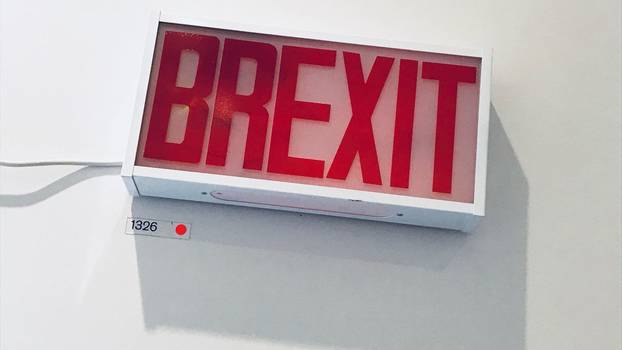
Brexit is a watershed and warning sign, a historical break and alarm signal. It marks a turning point for the hitherto highly successful and steadily expanding project of the European Union. It is also the first time that a member state has left the Union. But when the United Kingdom leaves the EU on 31 January after 47 years of membership, the future relationship between the British government and the Union will still largely remain to be settled. For the Brexit Treaty is little more than a simple divorce agreement with a few transitional arrangements tacked onto it. The future relationship, especially trade and economic relations, but also a wide range of other legal arrangements regulations, have to be agreed by the end of 2020. At least, that is what the exit agreement provides for. And 2020 will be a short 'year' for negotiations, since talks can only start in March at the earliest, so a tremendous amount of progress needs to be made if the transition period is really supposed to end in December. It is questionable whether the public will take as close an interest in the negotiations as they did in the Brexit process in recent months, because the – primarily symbolic – act of leaving will now take place on 31 January 2020. Brexit is done!
Andreas Thomsen is the Head of the Rosa-Luxemburg-Stiftung's Europe Office in Brussels.
The successful leave vote in the referendum on the United Kingdom's departure from the EU saw a populist, symbolic political agenda collide with a complex real-life situation. The upshot was an occasionally grotesque struggle over many, many months to implement the decision and realise the project. Among other things, the referendum and its consequences cost the Tories two prime ministers and landed them and the country with Boris Johnson, a premier who seems to be banking solely on symbolic politics. In the wake of the referendum, the core, complex problems faced by the UK and its government in light of the decision arising from it quickly dropped out of the spotlight. Only in exceptional cases (such as Trump's punitive tariffs on automobile imports) can trade policy and economic policy issues become symbolically charged, and even then in a grossly simplified manner. When the "Irish problem", namely the prospect of a customs border on the island of Ireland, was raised during the ensuing debate, it quickly overshadowed all other Brexit-related questions. For there can be no denying that the Irish border question is not only an emotional and highly sensitive issue on the island of Ireland. Naturally, it will still have to be sorted out.
For the European Parliament, however, the UK's exit will have immediate consequences, since the departure of British MEPs will reduce it in size from 751 to 705 seats. And just 27 of the 74 vacated British seats will be redistributed to other member states, leaving the Liberals and Greens in Parliament weakened the most, the Greens losing 7 of their 74 MEPs, the Liberals 11.
The EU's core institutions – the European Commission, Council and Parliament – are unlikely to miss the British, since the UK had a reputation for being one of the more difficult member states, always with at least one foot outside, like a built-in opposition. However, there are clear signs that the Commission not only wants the EU to be active, but is also intent on reform. In this regard, at least, it is in step with the French President. The Commission is just launching its two-year project of Conferences on the Future of Europe, a process that could – and perhaps should – easily pave the way for a new EU constitutional process. A reform of the EU, and also of its failed currency union, is urgently needed. This must also be in the interests of the political left. The continuing economic policy and financial policy misalignment in the Eurozone is producing ever more blatant inequalities within the Union. Many regions of Europe are a long way off harmonising living conditions. Here, in the struggle for reform of the Union, perhaps also in the context of a new constitutional process, lies the task facing the left. Right in the heart of a melee for a social, fair and peaceful EU. Because there will be a reform of the Union, and the forces of the left (which in this situation are banking on abstract criticism, on symbolic politics) will lose the argument because they are not even willing to start it. Instead, they will allow the simplifiers and right-wing populists, the nationalists and – let's not mince words – fascists to take matters into their own hands. Because these days it is they who can present themselves as key challengers of the worn-out neoliberal ideology. That is the warning sign. Brexit was – and remains – a political success for right-wing populism, but where do promising left-wing counter-strategies lie? Leftists across Europe and beyond are quite rightly are heatedly discussing this question, albeit without yet finding any convincing answers. Yet this is the biggest strategic challenge facing the left, and also the lesson to take away from the whole Brexit debacle.